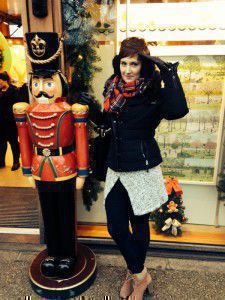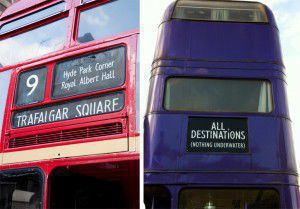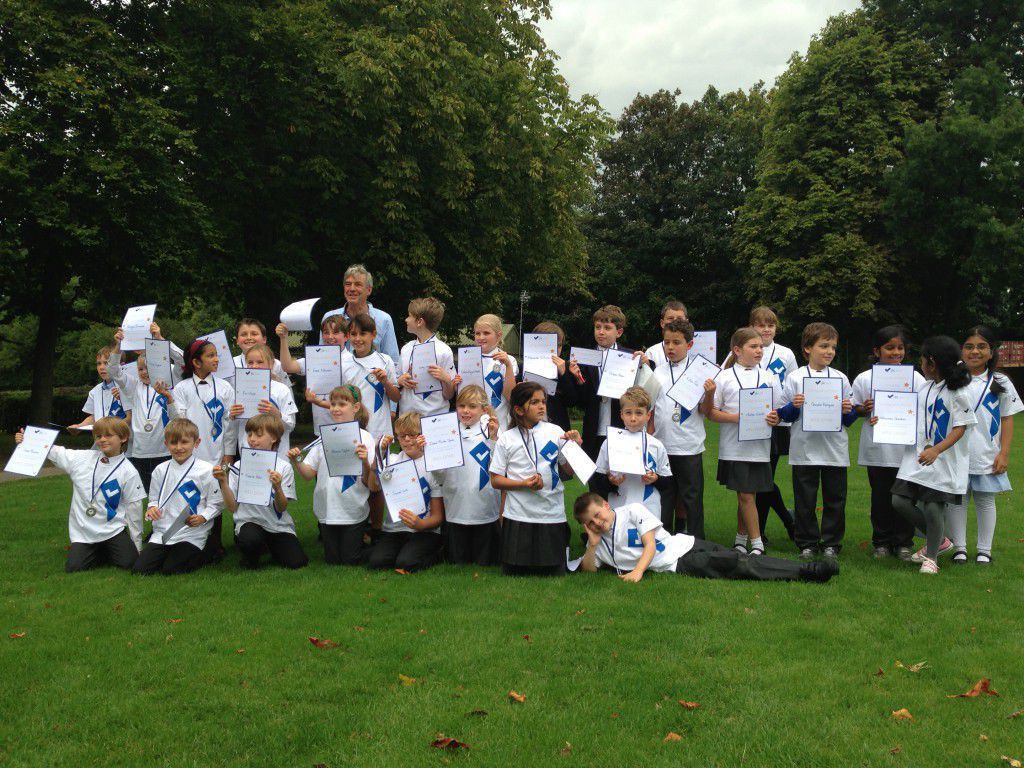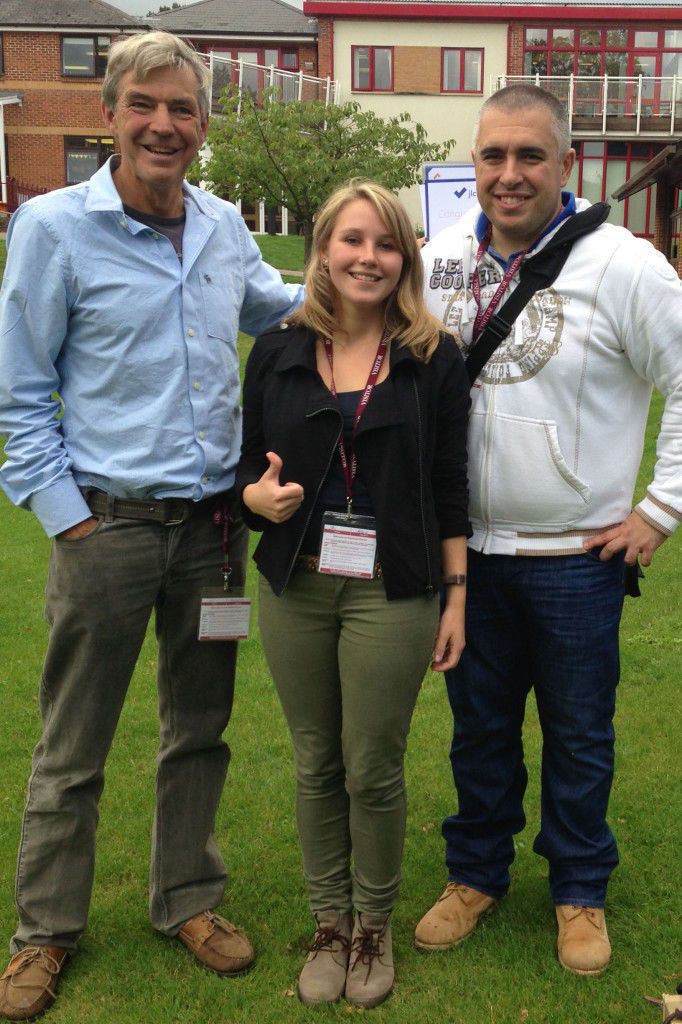What language does the voice in your head speak?
In today’s day and age, a great percent of the people travel, either for vacations, business or even a longer period of time, in search of a better job, better opportunities, to be with the loved ones and why not, just for the sake of a multi-cultural experience. While some of us learn a new language as a hobby or in school, migrants find that it is difficult to live in a country whose language you can’t speak. So this is where we get to the point of this article: how does it feel to speak another language than your native one, every day with everyone.
 First of all, let me take you on a history trip back in the ‘90s. No, we’re not going to listen to Backstreet Boys, instead I’m going to tell you how our generation got to learn English from TV back in Romania. There was a single cartoon program back then, Cartoon Network, and it wasn’t dubbed in Romanian (like it is now), nor did we have subtitles. So we’d just watch the cartoons without completely understanding what they were saying (not that there was much conversation, but still) and I would occasionally ask my parents what does this/that mean. From the age of eight we’d eventually start learning English in school, but by then it already sounded familiar and we would only add the grammar to the equation.
First of all, let me take you on a history trip back in the ‘90s. No, we’re not going to listen to Backstreet Boys, instead I’m going to tell you how our generation got to learn English from TV back in Romania. There was a single cartoon program back then, Cartoon Network, and it wasn’t dubbed in Romanian (like it is now), nor did we have subtitles. So we’d just watch the cartoons without completely understanding what they were saying (not that there was much conversation, but still) and I would occasionally ask my parents what does this/that mean. From the age of eight we’d eventually start learning English in school, but by then it already sounded familiar and we would only add the grammar to the equation.
Growing up, we had daily contact with American English from movies and music and by the time I finished high school I’d already got a certified advanced level.
So I was quite confident in my English; I got the chance to use it for both of the jobs I had in the years I worked in Romania, and I got along really well with the people I’d have to speak in English on the telephone or in meetings.
Last year, when I moved to London I was rather surprised to find that I couldn’t understand what these people were saying. I panicked at first but then I realised that no one is expecting me to be 100% fluent in English so I started asking questions or asking people to repeat so that I can understand properly. As I said, most of the English vocabulary I had was American, so I started picking up the differences like, ‘mug’ not ‘cup’, ‘biscuits’ not ‘cookies’ and ‘fringe’ not ‘bangs’.
At first I found it quite exhausting, and at the end of the day I wasn’t able to concentrate anymore or to use more complex words. With time, I got used to it and I started learning more and more words and expressions that I would afterwards try to use in conversations (like for example ‘I’m skint’, which means ‘I’m broke’). Also, in the first months here, I used to get nervous at the supermarket or whenever a unexpected conversation would start, fearing that I won’t find my words or that I wouldn’t remember certain things. With time, I started gaining more confidence and now, after ten months, I am easily able to have a conversation, express my feelings and ideas accurately and understand almost all what the other person is saying. I still have trouble understanding different English accents, and I would probably see myself stuck in a conversation about, let’s say, gardening tools – so certain topics with a specific word-pool.
You know how in your native language you can express your feelings and state of mind by the words you choose and by your tone of voice? Well, good luck doing that when you only know a single set of words for each thing. Also, studies have shown that sometimes people find that they can speak more freely in a non-native language because they don’t feel that the words ‘really’ belong to them, they’re not ‘their’ words.
But what happens when you spend more than half of the day speaking a different language? Your brain starts to associate certain situations, new situations that you didn’t have to deal with in your home-country, with a certain language – this is when you start to ‘think’ in another language. Some people associate this moment with the moment you start to feel like you belong to a certain culture, that your roots are starting to clench to the ground and now you’ve become (or at least moved closer to being) one of ‘them’.
So I’ve found myself in situations in which it was easier for me to express myself using an English word rather than a Romanian one, either because I found that it sounded better or because I couldn’t think of a proper translation.
It’s funny how the brain works sometimes – I got a call at work today from a business partner that also speaks native Romanian, so naturally I started talking to her in Romanian and found it very difficult to find the right words or to build the sentences without sounding stupid. I felt like I had to do a reverse-translation of what I would normally say in English.
At the end of the day, I can agree that using multiple languages really does wonders for your way of thinking and for the structure of your thoughts. Like Nelson Mandela once said, ‘If you talk to a man in a language he understands, it goes to his head. If you talk to him in his language, that goes to his heart.’
Ioana
Bye – or Auf Wiedersehen!
Our intern, Lorena, leaves us today to go home to Germany, and she’s been thinking back over her experiences in London and how she’s made the most of her time here to practise her English.
The time is running too fast. But I can’t say goodbye, because I think it means something sad is happening. But I am not dead, I am alive and I can come back to London. It takes me only one and a half hours on the airplane. So, I want to say ‘Auf Wiedersehen’. This means: see you again.
I want to say thank you to EuroTalk. This brilliant team work very well together and gave me a good feeling to work here. They showed me a good insight into the working life.
Now, I have been for six months in London. I enjoyed the time in this very big and exciting city, and I’ll go back to Germany with a smile. For everyone, who is thinking about going to another country: Do it! Don’t think too much about it. Nobody can take this experience from you. And you will see, you will leave the country with new impressions and you will be happy.
I came to London to improve my English skills. I did it, because I started sometimes to dream in English. If you are doing this, than it is a good sign. At first, if I listen to people in a shop, it takes some time to understand, what they are talking about. But you listen every day, than you understand more and more. Also I started to read a book: Eat Pray Love. I watched the movie in Germany, so I knew a little bit what the story is about. By reading the book, I expanded my vocabulary. Three weeks ago, I went to a cinema to watch the Disney movie Frozen. After I left the cinema, I was astonished how much I understood. And I really enjoyed this movie.
Moreover, if I am in the train, I read the newspaper. As time has gone on, I have understood more articles. It gave me a good feeling, because then I know what’s going on in London (news, politics…) And what I did also always, when I listen to music, I try to translate, what the singer wants to say. With fast songs, I found it sometimes hard to understand. But now I understand more. The important thing is to speak with the English people. Around the corner, there is a lovely pub. I love this pub. And I went there during the week to talk with the publican. It was always funny to talk with him and so I improved my English too.
I worked in a charity shop too, and before I went there each day, I drank a hot chocolate in a café. And I tell you, every time I sat there, I came to talk with people. I don’t know why. Someone told me I have a friendly face. Anyway, in the end I talk with the people and they asked me why I was in London. Talking is the best way to learn a language.
Auf Wiedersehen!
Lorena
Want to learn a language? Go to the pub*
The blog article about ‘Learning a language – our top 10 tips’ is so true! Now I have been in London for more than three months and you have to take all the tips to your heart. For example, ‘Don’t be scared to talk to people’ and ‘Find someone to talk to’ are very important points. And I found a good solution. Near to my house is a pub. And over time the publican and me, we have become good friends. He is a very friendly man and his daughter helps in the pub too. A happy family business! Every time I pass the pub, he waves at me. This makes me happy and I feel like I’ve arrived in this new city.
 I remember, the first time I was in the pub, because the internet in my homestay didn’t work. I thought, the pub will definitely have wi-fi! And I was right. I ordered a Coke and sat there with my laptop. The publican was curious about what I am doing in London and why I am here. I can imagine, suddenly there is a person from another country, speaking another language. Thus the first step was done. Whenever I didn’t know what to do with my evening, I would go to the pub. One day I was even allowed to use his kitchen for muffins! My host mother had a birthday and I thought it could be nice to make some for her. In the end I did 24 because the publican said, why didn’t I use all my ingredients.
I remember, the first time I was in the pub, because the internet in my homestay didn’t work. I thought, the pub will definitely have wi-fi! And I was right. I ordered a Coke and sat there with my laptop. The publican was curious about what I am doing in London and why I am here. I can imagine, suddenly there is a person from another country, speaking another language. Thus the first step was done. Whenever I didn’t know what to do with my evening, I would go to the pub. One day I was even allowed to use his kitchen for muffins! My host mother had a birthday and I thought it could be nice to make some for her. In the end I did 24 because the publican said, why didn’t I use all my ingredients.
So don’t be scared to go in a pub and if someone wants to speak with you, don’t panic. They are interested and they can help you to improve your English. Ask if you don’t understand something, and they will explain it to you. Believe me, it makes you happy, if you understand the meaning! So what do we learn from this? Always go in pubs!
And as point 10 said: ‘Enjoy it’! This the main thing. You want to learn a new language for you and you don’t have to prove anything to anybody. It is for you alone. If you are happy with the things that you are doing, you learn faster and more. I talk a lot with my host mother and love it. Every evening we have dinner together, we talk about her and my day. To live in a host family is also a good solution because when you arrive, you aren’t alone. Or like me, start an internship in this country! You have people around you and everything you are doing has to do with the language you want to learn. You take part in a working life. And before I take the train to come home, I take the London Evening Standard and read it in the train. Any social things you find, use them! Or what about a book? Start with one you know you will understand and later you can buy a book with a higher reading level.
Lorena
* Or a cafe. Or a restaurant. They work too.
London – a magic city
Now I have lived for more than two months in London. And one thing that struck me, is that I see little objects from the Harry Potter movies. I think it makes a difference if you live in England and see the movie, or you live in Germany, like me.
In Germany we don’t have double-decker buses and in one scene, there is a double-decker bus that changes its width. The first time I saw a double-decker bus driving in the city, I remembered this scene. The bus driver in Harry Potter was crazy (drove against the traffic!) and drove very fast through the streets. I know it’s only a movie, but… So I was thinking: “Should I get in? I need this bus, because it will take me to my language school. It is only a bus!” I had no choice but to take a deep breath and get on with it. The bus drove off and thank god, nothing special happened.

I see the architecture in London too. Some areas are similar to the area where Harry Potter lived with his adoptive parents, the Dursleys. I sometimes have the feeling that I have dipped into a different world when I walk around.
Also a typical accessory is the umbrella! As an Englander you need it, because you don’t know when it will start to rain. It is every day a new surprise. And Hagrid, one of the characters, uses it to get in the magic world where the magicians live. He taps the bricks and suddenly the wall opens like a door. Most people always have a umbrella here. Then there is the questions from the perspective of a German, are the people with an umbrella maybe magician? Is the story of Harry Potter true?
Sometimes when I go home, I see lots of people running, running, running! I think, why they always so hectic? They can take the next train. Or? But now I have the answer why! Because they don’t take the train. That is too boring for people here and that do only ‘normal’ people. Here in London you are running, because they do it like Harry Potter and all the other magicians! I think in London everywhere are distributed lots of similar platforms like the platform 9 ¾ at the Kings Cross Station. And instead of catching the Hogwarts Express, they catch the Home Express! Yes, I am sure that is the answer!
Also, when I saw the first time all the children with the beautiful school uniform (in Germany we don’t have uniform) that reminds me of the movie. Everyone here has a different logo from the school they go to. It is like the four houses in Harry Potter: Gryffindor, Hufflepuff, Ravenclaw and Slytherin. And after the school they get out their Nimbus 2000 and start searching for the Golden Snitch? Yes, here in London nothing can surprise me any more! They all look like little magicians! I thought, Lorena, you are in a magic city.
Lorena
Getting to know you: ‘Hallo’ from Lorena
My name is Lorena and I am from Germany. I just finished school and now I’ve started a placement at EuroTalk for five months. This is my third week in the company and it is very exciting. I am working on a project to help EuroTalk promote their maths apps in Germany. I’m having fun thinking about this task and I have a lot of ideas!
On my third day at EuroTalk, Wednesday 18th September, I went to the Junior Language Challenge at the Cranmore School in Surrey. It was the semi-final for London (South). At one o’clock we arrived at the school and prepared the iPads so that the children could use the Greek app.
About thirty thrilled children were ready to start! 🙂
… And after the welcome, it was finally happening.
The children were split up in two groups of thirteen and each group played the games. The children with the best score came into the final. The teachers and some parents could follow which position the children were in, because there was a whiteboard with the current score. For the children it was a very exciting situation and the teacher and parents were pretty curious.
After the challenge I saw only smiling kids! They were so happy and very proud of the certificates they got from EuroTalk.
And for me was it an interesting day and I got some impression of how EuroTalk promotes languages for children.
Lorena





